|
by Ryan Tibbens
UPDATE: This list started as a record of my Audible "reading" list, which I was amassing primarily as a response to my 90-115 minutes in the car each day. COVID caused a commuting hiatus, which equated to a listening hiatus. I then returned to in-person school from March through June 2021 and resumed daily listening/reading. But then it was summer. And then, when school resumed in the fall, I moved to a teaching position in an all-new distance learning program, which reduced my commute to a few seconds descending and ascending my basement stairs. Still, I'm enjoying new audiobooks (and slowly reverting back to paperback-reading). This is a mostly-complete list of my audiobooks in mostly-chronological order according to my experience. Some books get a letter grade; some books get their own reviews. It depends more upon my time and motivation than the quality of the book. Curious about a title? Want a recommendation? Drop a comment below or email readthinkwritespeak.
If you intend to purchase one of these texts via Amazon, please click the links here -- you pay nothing extra, but your purchase supports the ClassCast Podcast and Read.Think.Write.Speak. We receive a small percentage, even if you buy a different format (hardback/softback/Audible/Kindle/etc.) than the one linked. Finally, we highly recommend the Audible audiobook service. By clicking the links above and signing up, you receive a free one-month subscription, including two full books and two Audible originals, all of which you keep even if you cancel at the end of your trial. PLEASE use the links! 122) The Next Pandemic by Ali Khan -- ............................. -- In Progress 121) Glengarry Glen Ross by David Mamet -- ............................. -- C 120) Caffeine: How Caffeine Created the Modern World by Michael Pollan -- ............................. -- B 119) The Dented Head of Joey Pigza by Jack Gantos -- ............................. -- B- 118) The Hidden Life of Trees by Peter Wohlleben -- ............................. -- B- 117) The Overstory by Richard Powers -- ......................... -- A++ 116) The Human Stain by Philip Roth -- ......................... -- A+ 115) The Handmaid's Tale by Margaret Atwood -- ...................... -- A 114) The Tyranny of Merit by Michael Sandel -- .................. A+ 113) Funny in Farsi by Firoozeh Dumas -- ............................... -- A 112) Pedagogy of the Oppressed by Paulo Freire -- ............................. -- B 111) How to be an Antiracist by Ibram X. Kendi -- ................................ -- B- 110) The Alchemist by Paulo Coelho -- ................................ -- A- ~~ Start of Pandemic ~~ 109) Just Mercy by Bryan Stevenson -- .............................. -- A+ 108) The War on Normal People by Andrew Yang -- ...................... -- A+ 107) Being Wrong: Adventures in the Margin of Error by Kathryn Schulz -- ............ -- A 106) Civil Disobedience and Other Writings by Henry David Thoreau -- ................. -- A 105) Born a Crime by Trevor Noah -- ............. -- A 104) The Coddling of the American Mind by Greg Lukianoff & Jonathan Haidt -- ............... -- A+ 103) Guns, Germs, and Steel by Jared Diamond -- ................................ -- B+ 102) The Mis-Education of the Negro by Carter Goodwin Woodson -- ............................... -- B- 101) Peter Pan by J.M. Barrie -- .............................. -- B 100) Human Errors: A Panorama of Our Glitches, from Pointless Bones to Broken Genes by Nathan H. Lents -- ...................... -- A 99) Folks, This Ain't Normal: A Farmer's Advice for Happier Hens, Healthier People, and a Better World by Joel Salatin -- .................... -- A+ 98) Animal Liberation by Peter Singer -- ...................... -- A 97) Farewell to Manzanar by Jeanne Watatsuki Houston -- .................. -- B- 96) No Place to Hide: Edward Snowden, the NSA, and the US Surveillance State by Glenn Greenwald -- .......................... -- A 95) A Mind of Her Own by Paula McClain -- Historical fiction about Marie Curie.... -- B 94) Educated: A Memoir by Tara Westover -- ................................. -- A+ 93) Talking to Strangers: What We Should Know About the People We Don't Know by Malcolm Gladwell -- ........................ -- A 92) Unschooled: Raising Curious, Well-Educated Children Outside the Conventional Classroom by Kerry McDonald -- ............................. -- A 91) Napoleon Hill's Outwitting the Devil: The Secret to Freedom and Success by Napoleon Hill (and Sharon Lechter) -- ........................... -- C+ 90) I'll Be Gone in the Dark: One Woman's Obsessive Search for the Golden State Killer by Michelle McNamara -- I'm not much of a 'true crime' fan, so I didn't expect much from this book. However, it was highly recommended by several friends and fellow teachers; it was also written by the wife of comedian, actor, and Broad Run High School graduate Patton Oswalt shortly before her death. I gave it a shot, and I'm glad I did. My only real complaint about the book is that it is incomplete -- it presents a portions of the book, plus draft material, plus excerpts from other articles and essays, plus some material written or heavily edited by McNamara's friends and research team -- all because she died before it was complete. If we excuse this unavoidable flaw, the book is excellent. The writing is crisp and engaging, and the story itself is unbelievable. McNamara dives deep into one of the worst, and least known, serial killers and rapists in American history; she tells it all in a way that is both suspenseful and informative. I only wish she could have lived, both for her family and to see her obsession come to fruition. Even if you don't normally love true crime books, this is worth your time and attention. -- A- 89) Why Are All the Black Kids Sitting Together in the Cafeteria? by Beverly Daniel Tatum -- If you have ever attended or worked in a school (or anywhere else) with diverse racial and ethnic demographics, then the title should grab your attention. It grabbed mine. While the book does contain some excellent research and perspectives, it rarely offers anything truly new or unique. This book might function well as assigned reading in a college course, but adults who choose this text will likely already be familiar with many of the concepts and issues addressed. Personally, I felt like the book was at least twice as long as it should have been, and the new prologue goes on forever without making any clear connections to the purpose of the rest of the book (aside from general discussion of race in society). If you haven't read much about race and racism through anthropological, sociological, and psychological lenses, then this will be an informative, if somewhat boring, read. If you already have some reading and knowledge on the subject, then this might not be fulfilling. -- C+ 88) Casino Royale by Ian Fleming (Book 1 of original 007 series) -- I'm a long-time lover of Bond films, but I had never read any of the books, so when 'Casino Royale' went on sale, I jumped at the chance. Just like the movie, the gambling scenes go on (perhaps) a bit too long, but the writing is good, surprisingly good. Fleming's attention to detail both build suspense and create realism. Despite loving the movies, I really didn't expect much from the book and was pleasantly surprised. I now hope to read more of the series in the future. -- A 87) Breakfast at Tiffany's by Truman Capote -- Full confession: the movie Breakfast at Tiffany's is my all-time favorite "chick flick," though its use of a male protagonist might technically remove it from that genre. I've read that Capote disliked the film and thought Audrey Hepburn was the wrong actress for the part, which seems insane to anyone who has seen the film. However, now that I've read the book, I understand his concerns. The book is a bit more realistic than the film, less flighty, less whimsical, and even a bit dark at times. Holly Golightly is still charming and spontaneous, but there seems to be more vanity, more selfishness and shallow behavior; well, maybe not more, but the negatives are certainly more obvious and bothersome in the book. Despite the differences, I liked the book quite a bit, and its short length and character-driven story make it a good pleasure-read at the beach or on a rainy day. I might still like the movie better, but the book is excellent as well, for slightly different reasons. -- A- 86) Factfulness: Ten Reasons We're Wrong About the World--and Why Things Are Better Than You Think by Hans Rosling -- ........................... -- A+ 85) Hacking Darwin by Jamie Metzl -- ........................... -- A 84) The Things They Carried by Tim O'Brien -- ........................... -- A+ 83) Lying by Sam Harris -- ........................... -- B 82) How to Change Your Mind: What the New Science of Psychedelics Teaches Us About... by Michael Pollan -- ........................... -- A 81) I Contain Multitudes: The Microbes Within Us and a Grander View of Life by Ed Yong -- ........................... -- A+ 80) Free Will by Sam Harris -- ........................... -- A- 79) Candide by Voltaire -- ........................... -- A- 78) The Art of the Deal by Donald Trump (listened several months ago and accidentally missed it lower on this list) -- ........................... -- B+ 77) Dreams from My Father: A Story of Race and Inheritance by Barack Obama -- ........................... -- A 76) Hillbilly Elegy: A Memoir of a Family and Culture in Crisis by J.D. Vance -- ........................... -- A+ 75) The 21 Irrefutable Laws of Leadership by John C. Maxwell -- ........................... -- B+ 74) Thinking in Bets: Making Smarter Decisions When You Don't Have All the Facts by Annie Duke -- ........................... -- B+ 73) The Teacher Wars: A History of America's Most Embattled Profession by Dana Goldstein -- ........................... -- A- 72) Blink: The Power of Thinking Without Thinking by Malcolm Gladwell -- ........................... -- A 71) Cat's Cradle by Kurt Vonnegut -- ........................... -- A+ 70) The Testament of Mary by Colm Toibin -- ........................... -- C- 69) Man's Search for Meaning by Viktor E. Frankl -- ........................... -- A 68) On the Duty of Civil Disobedience by Henry David Thoreau -- ........................... -- A 67) Tuesdays with Morrie by Mitch Albom -- ........................... -- A 66) Johnny Got His Gun by Dalton Trumbo -- ........................... -- C 65) Slavery by Another Name: The Re-Enslavement of Black Americans from the Civil War to World War II by Douglas A. Blackmon -- ........................... -- A 64) The Greatest: Muhammad Ali by Walter Dean Myers -- ........................... -- B+ 63) The Importance of Being Earnest by Oscar Wilde -- ........................... -- A+ 62) Tribe: On Homecoming and Belonging by Sebastian Junger -- ........................... -- A 61) On Tyranny: Twenty Lessons from the Twentieth Century by Timothy Snyder -- ........................... -- B+ 60) Alice in Wonderland by Lewis Carroll -- ........................... -- B+ 59) Charlie and the Chocolate Factory by Roald Dahl -- ........................... -- A- 58) Anthem by Ayn Rand -- ........................... -- C+ 57) The Old Man and the Sea by Ernest Hemingway -- ........................... -- A+ 56) A Wrinkle in Time by Madeleine L'Engle -- ........................... -- B+ 55) The Phenomenon: Pressure, the Yips, and the Pitch That Changed My Life by Rick Ankiel -- ........................... -- B+ 54) The Botany of Desire by Michael Pollan -- ........................... -- A+ 53) The New Jim Crow: Mass Incarceration in the Age of Color Blindness by Michelle Alexander -- ........................... -- A+ 52) Bill Bryson's Appliance of Science by Bill Bryson -- ........................... -- B+ 51) The Circle by Dave Eggers -- ........................... -- A- 50) You Need a Budget: The Proven System for Breaking... by Jesse Mecham -- ........................... -- B 49) What Do You Care What Other People Think?: Further Adventures of a Curious Character by Richard P. Feynman & Ralph Leighton -- ........................... -- C+ 48) Gilgamesh: A New English Version by Stephen Mitchell -- ........................... -- C+ 47) Undefeated: Jim Thorpe and the Carlisle Indian School Football Team by Steve Sheinkin -- ........................... -- A 46) The Art of War by Sun Tzu -- ........................... -- C+ 45) TED Talks: The Official TED Guide to Public Speaking by Chris Anderson -- ........................... -- A 44) A Dirty Job by Christopher Moore -- ........................... -- C+ 43) Apocrypha Now by Mark Russell & Shannon Wheeler -- ........................... -- A- 42) The Omnivore's Dilemma: A Natural History of Four Meals by Michael Pollan -- ........................... -- A 41) The Communist Manifesto by Karl Marx & Friedrich Engels -- ........................... -- B 40) The Heart of Darkness by Joseph Conrad -- ........................... -- B+ 39) King Leopold's Ghost: A Story of Greed, Terror, and Heroism in Colonial Africa by Adam Hochschild -- ........................... -- A 38) God Is Disappointed in You by Mark Russell & Shannon Wheeler -- ........................... -- A+ 37) Widow Basquiat: A Memoir by Jennifer Clement -- ........................... -- A 36) Homo Deus: A Brief History of Tomorrow by Yuval Noah Harari -- ........................... -- A- 35) The Stranger by Albert Camus -- ........................... -- A- 34) The Last American Man by Elizabeth Gilbert -- ........................... -- A 33) The Prince by Niccolo Machiavelli -- ........................... -- C 32) The World According to Mr. Rogers by Fred Rogers -- ........................... -- A- 31) Sapiens: A Brief History of Humankind by Yuval Noah Harari -- ........................... -- A+ 30) Tao Te Ching by Lao Tzu, translated by Sam Torode -- ........................... -- B+ 29) The Lost City of the Monkey God by Douglas Preston -- ........................... -- B- 28) Money Management Skills by The Great Courses, Michael Finke -- ........................... -- B+ 27) In Defense of Food by Michael Pollan -- ........................... -- A+ 26) Tao Te Ching by Lao Tzu, translated by Stephen Mitchell -- ........................... -- A 25) When Breath Becomes Air by Paul Kalanithi -- ........................... -- A- 24) Being Mortal: Medicine and What Matters in the End by Atul Gawande -- ........................... -- A 23) The Last Lecture by Randy Pausch -- ........................... -- A- 22) The Tao of Pooh by Benjamin Hoff -- ........................... -- A 21) I Am Malala: How One Girl Stood Up for Education and Changed the World (Young Readers Edition) by Malala Yousafzai & Patricia McCormick -- ........................... -- A 20) What Money Can't Buy: The Moral Limits of Markets by Michael J. Sandel -- ........................... -- B- 19) Malcolm X: By Any Means Necessary by Walter Dean Myers -- ........................... -- B+ 18) Brave New World by Aldous Huxley -- ........................... -- B+ 17) Notes of a Native Son by James Baldwin -- ........................... -- B 16) Meditations by Marcus Aurelius -- ........................... -- A+ 15) On Power by Robert A. Caro -- ........................... -- C+ 14) Invisible Monsters by Chuck Palahniuk -- ........................... -- B- 13) 1984 by George Orwell -- ........................... -- A 12) One Flew Over the Cuckoo's Nest by Ken Kesey -- ................... -- A 11) Justice: What's the Right Thing to Do? by Michael J. Sandel -- .............. -- A+ 10) The Origins of Virtue: Human Instincts and the Evolution of Human Cooperation by Matt Ridley -- This book serves as some kind of extension or re-telling of the development of morality within human evolutionary psychology as told by Robert Wright in The Moral Animal (below). As a fair disclosure, I loved The Moral Animal, and I've read several other books by Matt Ridley. The Moral Animal is more literary somehow, perhaps due to the use of Charles Darwin's letters and life as a case study of human morality. Still, some reviewers were not as positive about Wright's work as me. Enter Matt Ridley. What this book lacks in literary stylings, it makes up for in thorough research and more clear explanations of the modes of evolutionary psychology. If you have a sincere interest in the subject, I recommend reading both books. If you prefer the literary, go with Wright. If you prefer a more direct expository approach, go with Ridley. I recommend this book -- A. 9) All Quiet on the Western Front by Erich Maria Remarque -- This is one of the greatest war novels (and anti-war novels) of all time. Taking the perspective of a young German soldier in World War I, Remarque shows war for what it is -- sad and scary and confusing and terrible. Hemingway and a slew of other authors changed how the world thought of war after WWI, but perhaps none did it better than Remarque. Hemingway said, "They wrote in the old days that it is sweet and fitting to die for one’s country. But in modern war there is nothing sweet nor fitting in your dying. You will die like a dog for no good reason." Remarque breathes life into that same concept. Teachers might pair this with Johnny Got His Gun, Born On The Fourth Of July, The Things They Carried, War, or Tribe (and a dozen others). Highly recommend -- A+. 8) Fight Club by Chuck Palahniuk -- Probably the crowning achievement of Palahniuk's ever-expanding catalog, Fight Club offers immense insight into a spiritual erosion that has become so common in modern society that we often don't even notice it. Consumer culture, discomfort with masculinity, and finding meaning all share the stage. The movie is fantastic, one of my all-time favorites, and this book deserves the same respect (plus, with some dialogue changes and a different ending). I highly recommend -- A+. 7) Slaughterhouse-Five by Kurt Vonnegut -- Vonnegut's best-known work, this modern classic is equal parts science fiction and anti-war novel. The writing is crisp and direct, the morals are generally good, and the innovative plot structure deserves analysis and respect. That being said, this was my third or fourth time reading the book, and for some reason, I think I like it less with each additional reading. So it goes. This book is great, and if you've never read it, you should. Strongly recommended -- A-. 6) The Rational Optimist: How Prosperity Evolves by Matt Ridley -- While it may not be the most entertaining read, this book is an argument for progress and a defense of it. An antidote to the usual doom-and-gloom that dominates academia and major media news outlets, Ridley's central thesis is that quality of life is, and has been, improving for nearly everyone on the planet for decades. One of his many sub-claims is that our progress is largely the result of capitalism, which will make the book more controversial to some, particularly political liberals and progressives. However, Ridley is very much in agreement with mainstream history, most economists, and accepted scientific theory, so while we might ~feel~ like we disagree with him, it is difficult to do so while thinking clearly. Even if you prefer the doom-and-gloom caution so common elsewhere, The Rational Optimist is a book deserving of your attention to provide balance and critical thought in otherwise dogmatically pessimistic conversations. I highly recommend. A-. 5) The Dharma Bums by Jack Kerouac -- A couple of my friends from high school LOVE this book and have recommended it to me since we were around 16. I read On The Road at least four times between high school and college, so I can't fully explain my hesitance about The Dharma Bums. The book does start slowly with far too much (fictional) name dropping and introduction, but once the characters make it to the mountains, the story and message become more clear. It's not On The Road, but it is quite good and in some ways might be more thoughtful. I recommend it -- B. 4) The Martian by Andy Weir -- I'm not a huge science fiction fan, but this is a very good book and a GREAT audiobook. Something about the writing style and the reader's style came together to bring this book to life. The movie is quite good too, and if I was reading the book (as opposed to listening), I'd say they're even in value; however, the audiobook does something special. I strongly, strongly recommend the audiobook to anyone who likes science, science fiction, adventure, or character-driven dramas. Excellent. A+. 3) The Evolution of God by Robert Wright -- One part history, one part theology, one part psycho-analytic criticism of traditional western religious texts, this book offers a crash course in religious teachings, Middle Eastern and Roman history, and cultural evolution. When I cross-checked some passages with my favorite priest, he agreed with ~nearly~ everything and even suggested that most of it was 'old news,' at least to him and those with similar educations. I doubt most Jews, Christians, and Muslims would see it that way. If you have an interest in religion, history, and/or cultural evolution, I highly recommend. If not, then I still think it's worth checking out, but maybe borrow it from the library and wade in cautiously. A-. 2) The Road by Cormac McCarthy -- This harrowing tale of a father and son surviving in a post-apocalyptic world is both beautiful and terrifying. I'm glad I waited to read it until after having children; my inability to stop thinking about my son during particular passages made the book one of my more intense literary experiences. And if you have seen the movie, promptly forget it and check out the book -- much, much better. A modern classic, I highly recommend it -- A+. 1) The Moral Animal: Why We Are the Way We Are: The New Science of Evolutionary Psychology by Robert Wright -- An intriguing look at human evolutionary psychology and the evolution of morality, this book is both well written and well researched; it also provides an intimate, basic biography of Charles Darwin. For those with curiosity about, but limited background knowledge of, evolutionary psychology, this is a great place to begin. Highly recommended -- A.
0 Comments
Submission by Guest Author
Financial literacy is vital to success in life and should be a part of any young person's education. By learning how finances work, young people will understand how, and why, to plan carefully as they make key financial decisions later in life. Why Financial Literacy Should Be Taught in Schools
Failure to acquire financial literacy can lead to catastrophic crises, such as bankruptcies, foreclosures, evictions, homelessness, inability to cover emergency expenses, inability to obtain desired medical or dental services, and other dire yet avoidable scenarios.
Conversely, acquiring skills in personal finance management can enable one to enjoy financial stability and earn exponentially more — through long-term investing — than one can from one’s salary. Financial literacy empowers an individual to live happily, healthily and securely throughout his or her life. Consider financial security impacts every facet of life including: ● Career choices ● Stress levels ● Home Buying and renting ● Marriage ● Raising children ● Dining, travel and entertainment ● Retirement ● Health care Understand How the World Works
Financial literacy also includes understanding how financial markets work. It will need to cover stocks, bonds, mutual funds, ETFs, and commodities, as well as the world’s great exchanges, like the London Metal Exchange, the Chicago Mercantile Exchange, and Intercontinental Exchange.
Such an education will also include the various instruments that can be used for investments, such as options, futures, and other securities. And it should include basic ways that students can analyze their investment choices such as comparing real estate investments to gold. Understanding these things will help students better grasp the meaning of national, regional, and world events. And it will provide the groundwork for a lifetime of delayed gratification — saving and investing. Stability of a Nation
Sounds finances also bolster the stability of a country. For example, research shows that the most stable societies are those where the majority of citizens diligently save and can therefore provide for themselves in emergencies and in retirement. The latter is particularly important, as with health care advances, people are living longer and need a larger “nest egg” than in decades past, in order to retire comfortably.
Savings rates vary between nations: China has one of the world’s highest rates, its citizens save an average of 25% of each paycheck. By contrast, Americans are an average of over $90,000 in debt. But during the uncertainty of the pandemic, the average savings rate of Americans reached over 32%. By contrast, their savings rate averaged between 6%-8% over the preceding decade. That said a nation’s debt also plays a factor in the stability of a nation, and helping students understand America’s debt can help them become informed voters. Understanding financial markets, including how commodities and stock exchanges work, as well as securities, is essential.
In a survey conducted by Credit Karma and Qualtrics, 63% of participants said they wanted financial literacy taught in schools.
Yet, while there's great consensus about the need for financial literacy in education, opinions on how, exactly to implement that objective vary. For instance, in that survey, roughly one-third each of respondents believed financial literacy education should begin in elementary, middle or high school, with small outliers, comprising about 5%, believing it should begin in college. Steps for Implementing Financial Literacy in Education
In 2007, the Consumer Financial Protection Bureau published, "A guide for advancing K-12 financial education" to help resolve some of these questions and to help educational institutions implement such programs. In this report, the authors parse the daunting project into a sequence of digestible actions:
AccessibilityImplementing financial literacy into the education systems of various school districts, each with its own unique set of challenges and resources, will require careful attention, and perhaps adaptation to concerns about equal accessibility to knowledge. Education Gaps
Financial literacy education must be implemented equally and uniformly across all districts and economic spectrums if it is to truly be effective in uplifting and securing the future of subsequent generations.
Next Gen Personal Finance published a report in 2018 called, "Who Has Access to Financial Education in America", which found that, in the poorest areas, the percentage of students required to complete a personal finance course in order to graduate high school was the smallest. For instance, access to technology plays a major role in how effective such a program can be in any given community. Many banks and brokerages now have mobile apps their customers can download onto their smartphones and mobile devices. In many cases, these apps include tutorials not only on utilizing the functions of the software but on better managing one's personal finance, from keeping a checkbook to creating a budget and saving and investing. Digital tools, like ClassCast Podcast create on-demand content giving students an even deeper dive into some of the more specific topics and challenges they may face in their financial education and lives. Using financial apps and digital tools, however, requires a means with which to use them. Despite the ubiquity of smartphones, some students still don't have them. Many don't have computers at home either, or ones they can access or that have access to the internet. All of these technological obstacles must be overcome in order for students to have equal access to learning financial literacy using these tools. Ways schools and districts can support greater access to the technology needed to run financial apps include:
The Role of Games
There are currently many games on the market, such as CashFlow, that provide a fun, engaging way to learn about financial management and to be rewarded for making the right choices.
Games provide an immersive, playful experience. Players get immediate feedback and learn through iterative actions and benevolent competition. Importantly, academic research shows that games are effective educational tools. Conveniently, there are financial games available for all age levels. Some games are designed to be played in the classroom. Some are downloadable apps. And others are designed to be played online in a browser. Here are some examples of popular games:
In Summary: A Team Effort
If basic financial skills aren't taught in schools, where else will students learn them? Unless parents take on teaching their kids financial literacy or individuals seek it out themselves later in life, schools are the only places where these vital skills may be instilled.
Incorporating programs teaching these skills into classrooms requires the focused and combined effort of teachers, administrators, students, parents and the community at large. As the Wisconsin Department of Public Instruction laid out, it requires a clear mission and vision and must be relevant, learner-centered yet community-focused and connected to the standards of the educational system. It must also be properly integrated with other curricular areas, supported with sufficient resources and continuously evaluated and adjusted for effectiveness. If done right, however, schools can help their graduates go on to lead happier, healthier and more secure and prosperous lives. Other Resources "Closing the Financial Literacy Gap"; Laura Zingg, Teach for America "Resources and Downloads for Financial Literacy"; Edutopia
By Ryan Tibbens
For approximately the last 12 years, my English 11 and AP English Language and Composition classes have included a heavy focus on antiracism and race in American culture. We read short, nonfiction biology, anthropology, sociology, psychology, history, and personal narrative articles about racism. We discussed the topics, the conflicts, their cause, and their possible solutions -- all in great detail. We wrote essays that aligned to state and College Board standards while keeping the focus on biases, prejudice, and injustice in our lives, our country, and our world. We organized all these texts, ideas, discussions, and essays within units defined by longer works of cultural and historical significance -- The Narrative of the Life of Frederick Douglass, The Autobiography of Malcolm X, and The Adventures of Huckleberry Finn.
But this year, things will be different. We will still read a few of those shorter articles, but new reading guidelines issued by Loudoun County Public Schools make those longer texts, and -- more directly, the discussion and analysis of them -- highly dangerous, perhaps impossible. While teachers can still assign those texts, we can not read aloud, play recordings, or even censor the books to allow for whole class or small group discussion. Essentially, students can read the books and discuss the broader concepts, but they can not connect specific language from the texts to their assertions, and teachers can not lead a discussion of specific passages. Good literary and text-based discussion requires specific, concrete connections to the text, so a prohibition on quoting a book makes it unusable. One part of the new county reading guidelines makes this clear (emphasis is original): "DO NOT use audio books or read passages with sensitive language or racial slurs aloud, nor should students read these passages aloud. Teachers may not read the passage and omit the offensive word or supply a substitute word. Language spoken aloud that is oppressive causes violence and trauma to students and provides tacit permission for students to use these terms outside the classroom." As a result, my classes will no longer be reading the works of Frederick Douglass, Malcolm X, or Mark Twain. In fact, despite how strongly I feel about promoting antiracism alongside strong literacy, rhetoric, and critical thinking skills, the antiracism unit will be significantly reduced this year because there are very few high quality, antiracist texts that are appropriate for AP-level classes that also do not include racial slurs. Instead, this year, students will read The Coddling of the American Mind by Greg Lukianoff and Jonathan Haidt. This book raises questions about the steps we, as adults and educators, are taking to protect students from potential discomfort and offense. The authors will raise concerns about the county's use of the words "violence" and "trauma" in the guidelines. I used this book as part of a "choice" unit last year, and students gave overwhelmingly positive responses. Many acknowledged that it was not a particularly "entertaining" book and that they would not have chosen it outside of class, but they nearly unanimously agreed that the book is important, that its ideas are worthy of consideration, and that they were glad to have encountered these ideas before going to college. The book itself has been a lightning rod -- people either love its criticism of modern "woke" and "PC" culture or hate that same criticism, deeming it "regressive" and worse. For those interested in an overview of the concepts, Lukianoff and Haidt originally published their concepts and claims as an article in The Atlantic back in 2015. The popularity (and controversy) of this article led to the full length book that students will be reading. This year, we will examine Lukianoff and Haidt's book through a slightly different lens. First, students will have to decide how much they agree and disagree with their claims. Then they'll have to decide how important content warnings, censorship, and students' cognitive "safety" are to them. Finally, they'll decide what they think public school systems and universities should do when addressing books, speeches, and other communications that include sensitive language or that contain potentially offensive ideas. There is no "right" or "wrong" answer. Students will be free to discuss, argue, and write as they see fit. The only limitations are that their work must be appropriate for an AP or college level classroom, that it must be honest, and that it must be well supported using evidence from class texts and that they find on their own. In a time when mainstream American culture seems to care about racism, justice, and free speech more than ever, students will have to decide -- Can we overcome racism while removing Frederick Douglass, Malcolm X, and others from the classroom? Please direct all questions and comments to the author of this article and/or your teacher.
The Rubik's Cube, invented in 1974 by Hungarian sculptor and professor of architecture Ernő Rubik, is a puzzle with over 43 quintillion possible combinations. Yes, 43 quintillion! 43,000,000,000,000,000,000! For many, a puzzle with that many possibilities seems practically impossible to solve, but for decades, people have been improving the uses of the Rubik's Cube from just an experiment of the creator, to a logical puzzle game, to a sporting event that features incredible people known as “speed cubers.” Learning to solve the cube offers many benefits, including improved memory and problem-solving skills, the ability to map through the experience in learning algorithms, and improved reflexes from training to solve the cube at faster speeds. The cube also provides intangible benefits like discipline, perseverance, and self-confidence. And, of course, it makes for a hell of a conversation starter.
The benefits of learning the cube have been felt first hand by the team behind Cube Up Solution, a group of young, Black software developers and avid cubers who wanted to introduce more minority children to the wonder world of cubing. The team behind Cube Up Solutions believes that it is their duty to promote cubing in minority communities and help develop problem solving and technical skills of children, teenagers, and adults who may otherwise not appreciate the wonders of cubing.
The team behind Cube Up Solutions believe that the social and political landscape of the United States, especially for the Black community, is shifting and a change of focus and leadership is necessary. We believe leadership needs to shift focus from obtaining political power to acquiring more intellectual and economic power.
We hope to contribute to developing our future leaders of tomorrow by helping develop their problem solving and technical skills. We look at cubing, coding, robotics, genetics as fields that young children should be focusing on now so as they move into their future careers they have a foundation to help further the cause of creating equality of opportunity for all. We look at the Rubik’s cube as a perfect springboard to introduce kids to the skills they will need to survive and thrive in the world of tomorrow.
If you are interested in having your child learn the Rubik’s Cube, or if you want more information about Cube Up Solutions and what they can offer your community, please request more information via email at [email protected] or through Instagram under the handle @cubeupsolutions.
~~ Article and images provided by Cube Up! Solutions ~~
By Simon Tang
The ensuing conflict between parents and teachers over the response of the school systems across the nation, and in Loudoun County, make evident one fact: both facilitators of our education are part of the bigger problem.
In a way, the teachers and the parents are really one in the same. To contextualize this, consider two powerful politicians: Donald Trump and Alexandria Ocasio-Cortez. In short, both are politicians who influence and conduct policy in 280 characters or less, both are polarizing figures within their respective political parties, both appeal to a specific base in their political party as opposed to the entire party at large. Donald Trump and Alexandria Ocasio-Cortez are basically the same people a few generations apart and on opposite sides of the political spectrum. Why does that matter in a discussion about education and school reopenings?
Because teachers and parents are essentially fulfilling the same roles in a different conflict: while parents are calling for in-person schooling for their children, the Loudoun Education Association (LEA) and its members have called for 100% distance learning. Both, however, ignore larger problems just as Donald Trump and Alexandria Ocasio-Cortez do in the political sphere.
Where is student input in any of the positions that parents and teachers have taken? Parents are concerned about their children’s education, but what about the kids themselves? Where do they find themselves in trying to answer this challenging question? And what about the concerns for teachers’ children? This negligence works both ways. In a statement released on Monday, July 6, the LEA said, "As the voice of employees, LEA conducted an all staff survey and provided the results to LCPS Administration and the School Board in early June. Unfortunately, vital employee input was not incorporated into the development of LCPS’ presented plans." "As the voice of employees... Unfortunately, vital employee input..." It sounds like LEA’s concern for students is minimal. While the educators’ concerns are important, if "academic growth, physical safety, and emotional well-being of our students" is most important, doesn't it make sense to consider the students’ own concerns? What is incredulous is that neither parents nor educators seem to understand the fact that their conflict does not help students, but neither did their “partnership” in pre-coronavirus times. Both parties subverted students' autonomy and their ability to become learners together. Now they are just doing it apart. In the background of racial injustice, the killing of George Floyd, the shooting of Breonna Taylor, the sexual assault of Vanessa Guillen, it is important for us, as a society, to come together to ask and answer the questions surrounding racial violence. These events are not isolated; they are part of a larger problem in this country. In the same way, the challenges we face in education – of helping students become the agents of their own education, of addressing racial inequity within schools, of services for students who need special accommodations – are not isolated problems. They are part of a larger failure. Now, I am challenging you to realize that today’s social and political ills are connected with flaws in our education from yesterday. The problem is a lot bigger than a simple comparison of Donald Trump and Alexandria Ocasio-Cortez or the names of those fallen in the cause for social justice. In a political climate such as this, is it not important that the next generation receives the highest quality education? The students of today will be the policymakers of tomorrow; serious changes to our political system and status quo must start with how we educate students. Educators and parents playing the role of politicians in our homes and in our schools does little to empower students; they are the same as politicians focused on reelection in the fall. Just as politicians are seemingly interested in challenging the racial status-quo in this country, educators and parents are seemingly interested in the welfare of students. But how much is self-serving, posturing, and virtue signaling? For this – our education system – to work, students must be the driving force of their own education. Students must be empowered to think and act of their own free will. What we have now are options – and no solutions – just as in the real world where there are options but no clear solutions to our social ills. I realize that this writing does not provide an in-depth answer about the question of race in the United States, nor about the many questions about schools, but my conclusion is this: the only solution to the social and educational problems we face today is to convert students to life-long learners, and it starts with changing the minds of parents and educators in our homes and our learning environments. They must recognize that students should be included in the solutions, not ruled over and compelled. Wayne Gretzky once said, “You miss 100% of the shots you don't take.” The only solution now is to take a shot. By Jonathan Walthour Jonathan Walthour is a 2018 graduate of George Mason University and 2014 graduate of Heritage High School. He is a business systems analyst who enjoys spending time with friends, trading on foreign exchange markets, and has been getting more involved in the Black Lives Matter movement. Jonathan wrote this short essay and shared the videos (scroll down) to help others get a more personal, less media-centered view of the BLM protests in Washington DC. The date was June 2, 2020, and the time was around 5:00pm. A few friends and I got out of the car on Vermont Avenue and walked toward Pennsylvania Avenue, The White House. We eagerly moved toward the energized protesters. I noticed a family of five (father, mother, and four young children) with cleaning supplies trying to scrub profane anti-Trump graffiti off a nearby wall. No one said anything as we walked by, but I thought to myself: “Why bring little children to this type of atmosphere where there’s going to be a riot?” As we continued to walk, the roaring chants grow louder, and the electric atmosphere rose as well. I did not know whether to feel scared or excited; little did I know what I was about to see. As we finally turned the corner on Pennsylvania Avenue and merged into the crowd, I could not believe my eyes – Thousands upon thousands of peaceful protesters chanting the names of those brutally slain by police. There were people handing out snacks, water, sanitizer, posters, gloves, masks, eye drops – you name it; it was most likely there. The most shocking revelation was the number of demonstrators who were NOT African American marching alongside us. As a black man, it gave me hope to see people were advocating for a problem that was not necessarily “theirs” but who realized the OVERALL problem and made it theirs. By no means will anything change overnight. But day by day, more and more people become educated and aware, whether they agree to advocate for BLM (Black Lives Matter) or not. A change is going to come… in due time. We, as Americans, have the right to speak up, and we must make our voices heard. We MUST stop the brutality of law enforcement. Not all protests are riots, and not all cops are bad. But there is one common enemy: racists. We need political change and change to policing policies; cops must be held accountable when they commit a crime. The date is now June 12, and Breonna Taylor’s murderers are STILL free and getting paid…Yeah, something is not right. If you do not know the story, today’s a great day to do some reading. And if you really wish to make a difference, keep in mind it is your civic duty to vote and let your voice be heard. Reposting on social media can raise awareness and funds, but voting and expressing your own morals have even more impact. |
Read.Think.Write.Speak.Because no one else Archives
December 2021
Categories
All
|




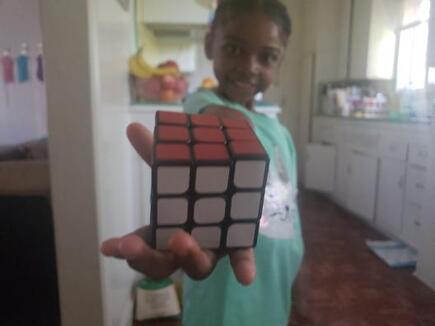
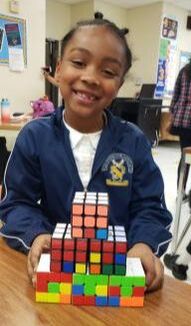
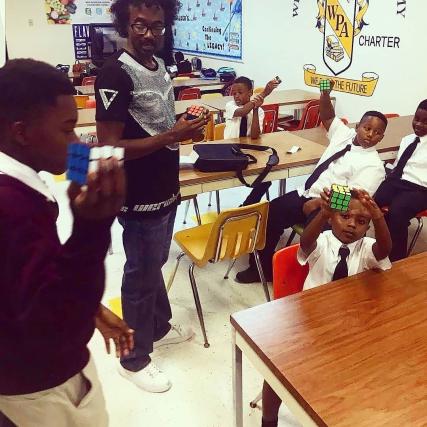
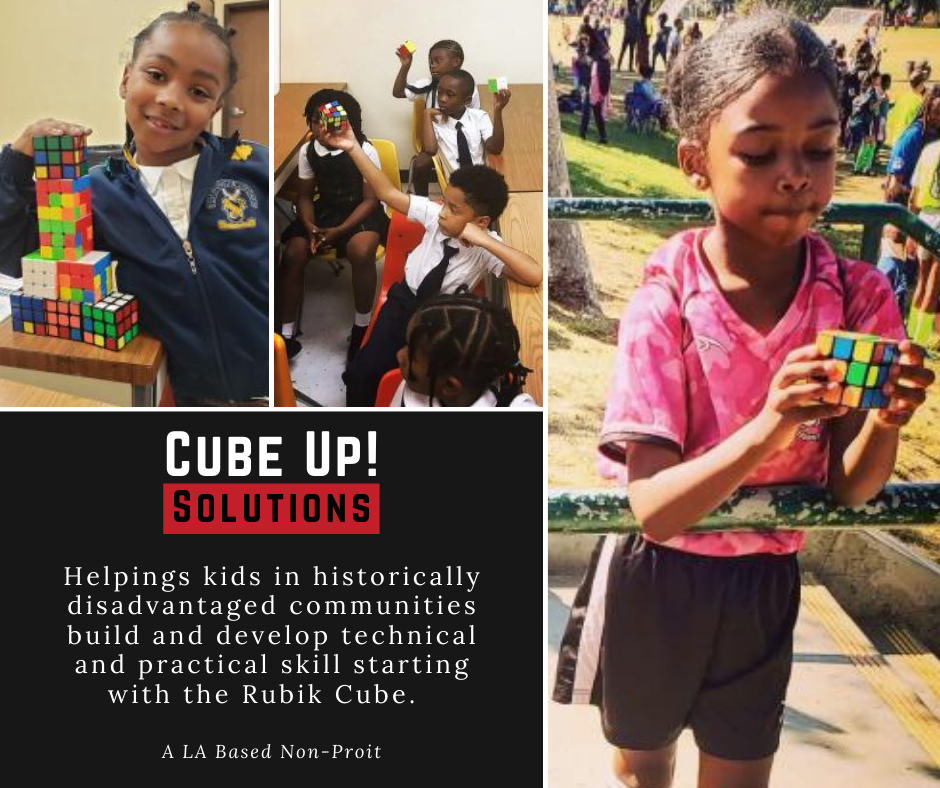
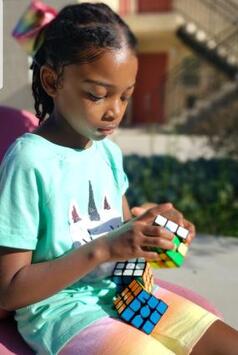
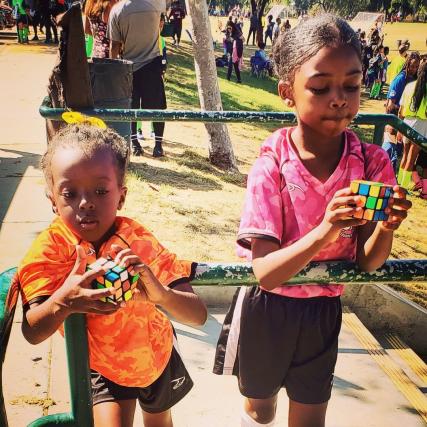
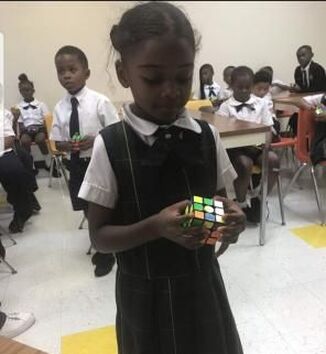
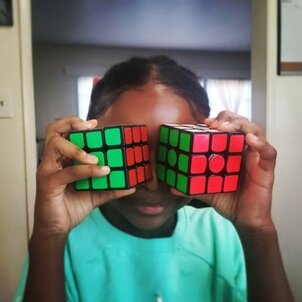
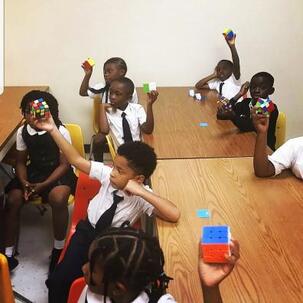
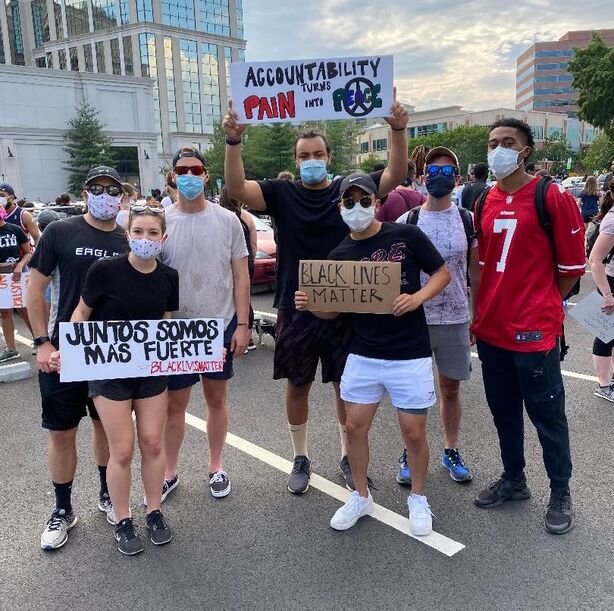
 RSS Feed
RSS Feed